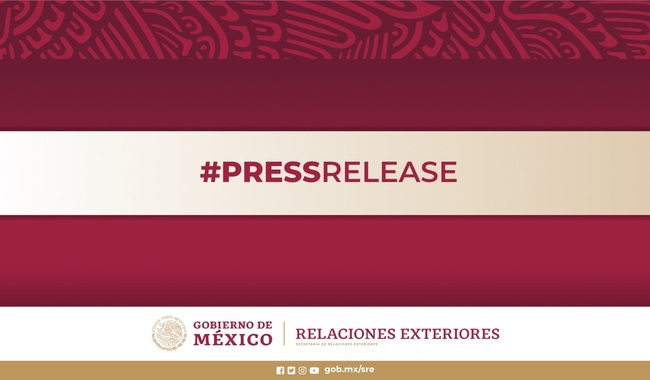During the 163 period of sessions, the Inter-American Court of Human Rights (IACHR) held a public hearing on November 28-29 to address Mexico's request for an advisory opinion on “the activities of private companies engaged in the firearms industry and their effects on human rights.”
The Mexican delegation was led by Foreign Secretary Alicia Bárcena Ibarra, who delivered a pre-recorded message to the IACHR explaining Mexico’s factual and legal arguments.
The Foreign Secretary emphasized that the negligent practices of companies that manufacture and market firearms, which facilitate their illicit trafficking, dramatically accentuate various forms of violence that have differentiated effects on people in vulnerable situations in Mexico and the region of Latin America.
Sixty-four briefs were submitted on the request for an advisory opinion, of which 62 supported Mexico’s arguments: 4 States, 2 OAS bodies, 2 human rights organizations in Mexican states (Puebla and Jalisco), 13 organizations, 24 academic institutions and 17 individuals from civil society.
Of note is the participation of the Inter-American Commission on Human Rights, which stressed during the hearing the need for States to regulate and adopt domestic legislation that controls and monitors the marketing done by the firearms industry. It also said that States should require due diligence in terms of human rights from the companies that are part of the arms industry, especially when these can generate extraterritorial effects.
The representatives of Bolivia and Colombia, as well as organizations from Ecuador, Argentina and Brazil, referred to the problems in their own countries that stem from the ready availability of firearms. They described to the Court the serious situation in the Latin American region caused by armed violence, and the need to regulate the industry’s activities.
Finally, the Court showed great interest in the type of practices that would exemplify a lack of due diligence on the part of arms companies that would facilitate illicit arms trafficking.
Several participants presented examples, such as the lack of safety mechanisms in the guns; the ease with which they can be modified; the lack of background checks on people buying guns; the absence of traceability mechanisms; the marketing of guns to children and adolescents; and their promotion of the criminal use of guns, among others.
In addition to the two civil cases underway in U.S. courts, and as part of the Mexican government’s legal strategy to combat illicit arms trafficking and reduce the violence this causes in our national territory, Mexico has asked the Inter-American Court for an advisory opinion on whether the negligent and illicit activities of private arms companies violate human rights.
Mexico has asked the Court for advisory opinions on two previous occasions, the last time being in 2003, so this new request strengthens our relationship with the Inter-American Court and reaffirms our country's confidence in the inter-American human rights system.
